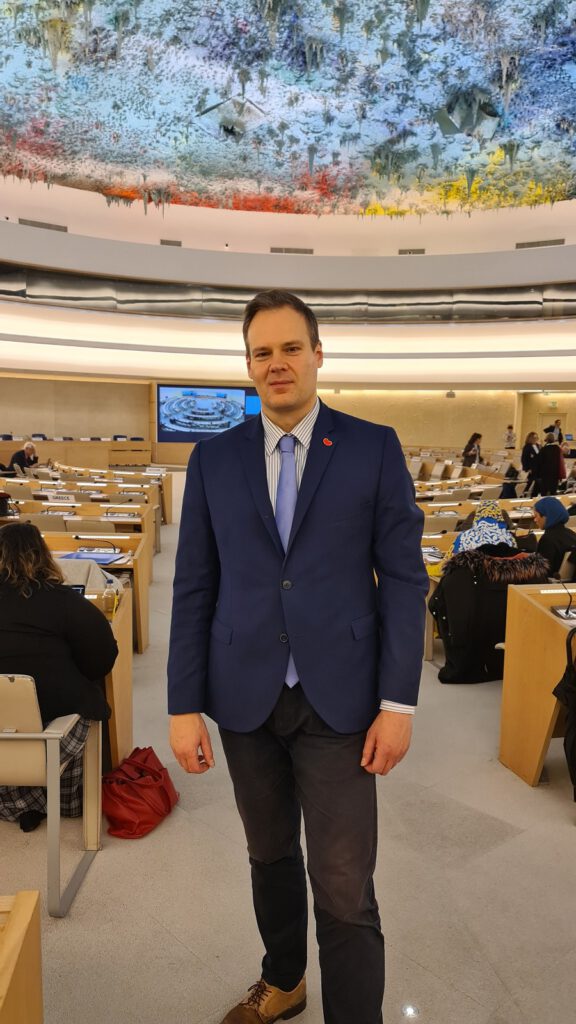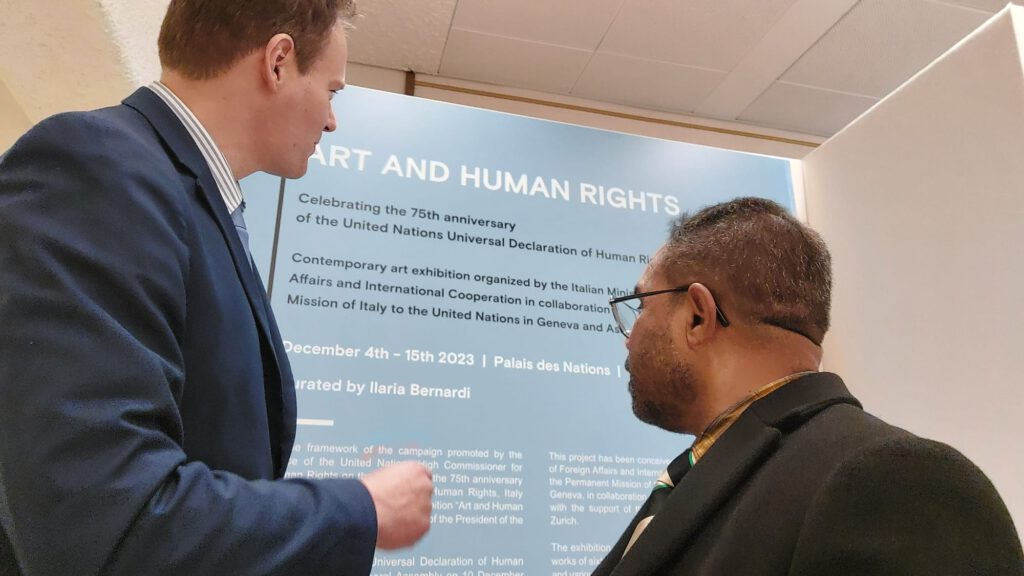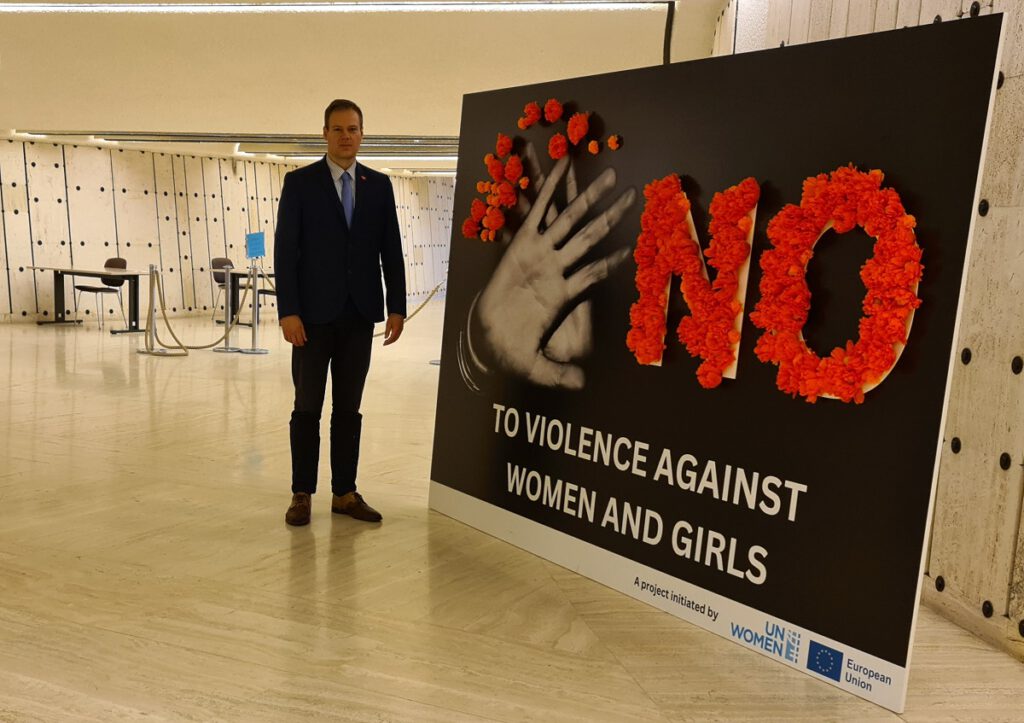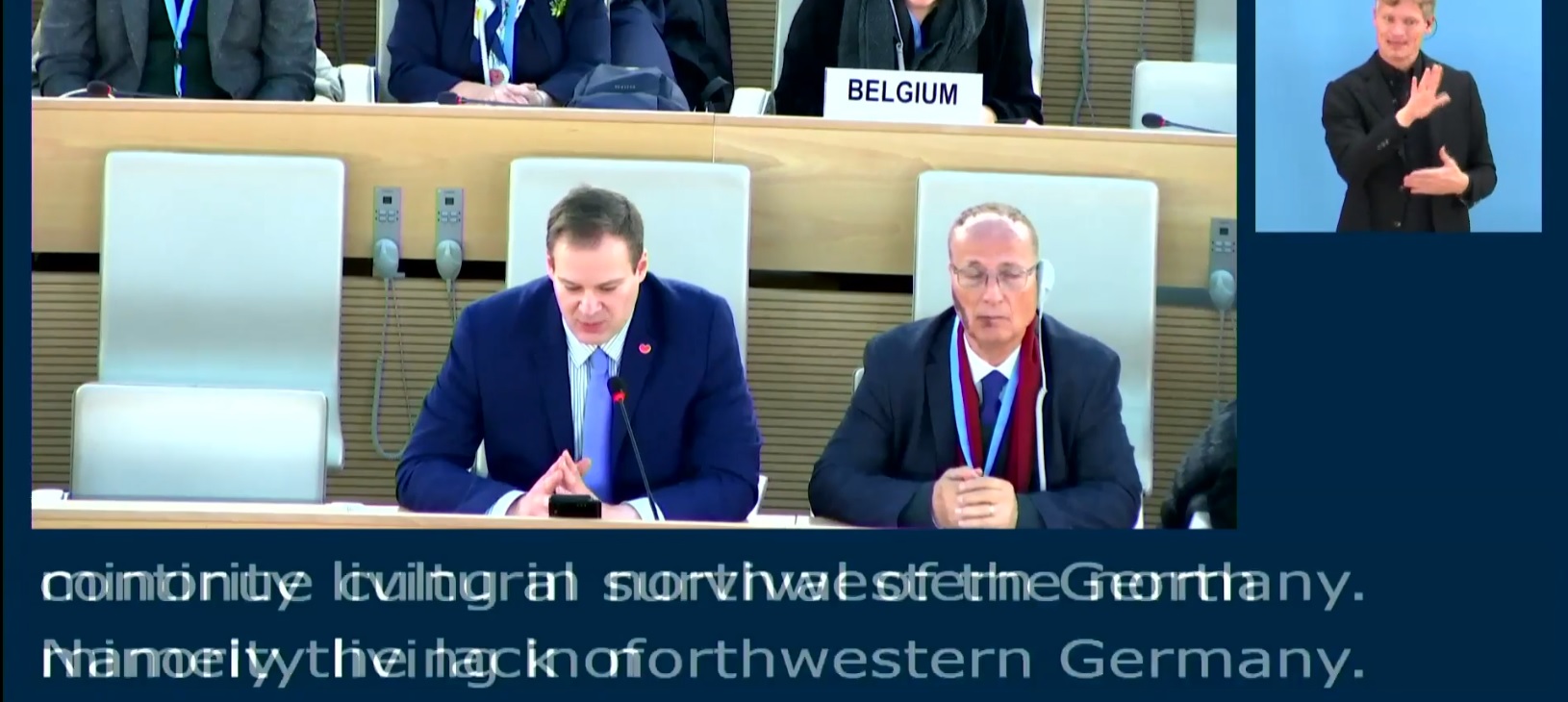On 30 November – 1 December 2023, the Forum on Minority Issues convened at the United Nations in Geneva, Switzerland. The theme for the 16th session was: ‘Minorities and cohesive societies: equality, social inclusion, and socio-economic participation’. On Friday 1 December 2023, Mr. Jeroen Zandberg made the following statement about the exclusion of the Frisians from the digital sphere:
I wish to highlight a major challenge to the continued cultural survival of the North-Frisian minority living in northwestern Germany, namely the lack of a digital presence of the language. The Frisians are recognized by Germany as a national minority. German law guarantees support and protection of the Frisian language and culture. It specifically guarantees the possibility to use the Frisian language in contacts with the local- and regional government. North-Frisia is organized in twelve local- and one regional government. All these authorities have elaborate websites through which citizens are informed and where they can access government services. However, none of these websites are in Frisian; not the information, nor the services. If you want to interact with the government in Frisian you must go to a physical office. The digital government services that a Frisian speaking citizen has access to are all in German.
The linguistic exclusion also encompasses digital office and productivity tools, which are unavailable in North-Frisian. An example: the Sorbs are also a recognized national minority in Germany. In April 2023, they announced the final incorporation of the Sorbian language into the Microsoft Office digital products. This joyous feat was the result of a community partnership program where Sorbian cultural organizations cooperated with Microsoft engineers in creating a language model for Sorbian.
We have also shown interest in this community partnership program and Microsoft gave us an overview of what they need in order to create a digital language model for North-Frisian. This includes one million parallel translated sentences and a great deal of other resources that the North-Frisian community does not possess.
The North-Frisian community is linguistically excluded from the digital public sphere. If this digital gap is not closed, the minority rights of the community will be illusionary.
We hope that the United Nations can help linguistic minorities with less resources to bridge the gap between physical and digital presence, thereby ensuring continued survival of the language.
Thank you,
Jeroen Zandberg
On 1 December 2023, Mr. Zandberg also took part in the ‘Workshop on cultural rights and the protection of cultural heritage‘. The speech below was submitted to the secretariat and therefore became part of the deliberations. However, due to time constraints and the great number of speakers, the statement could not be orally delivered.
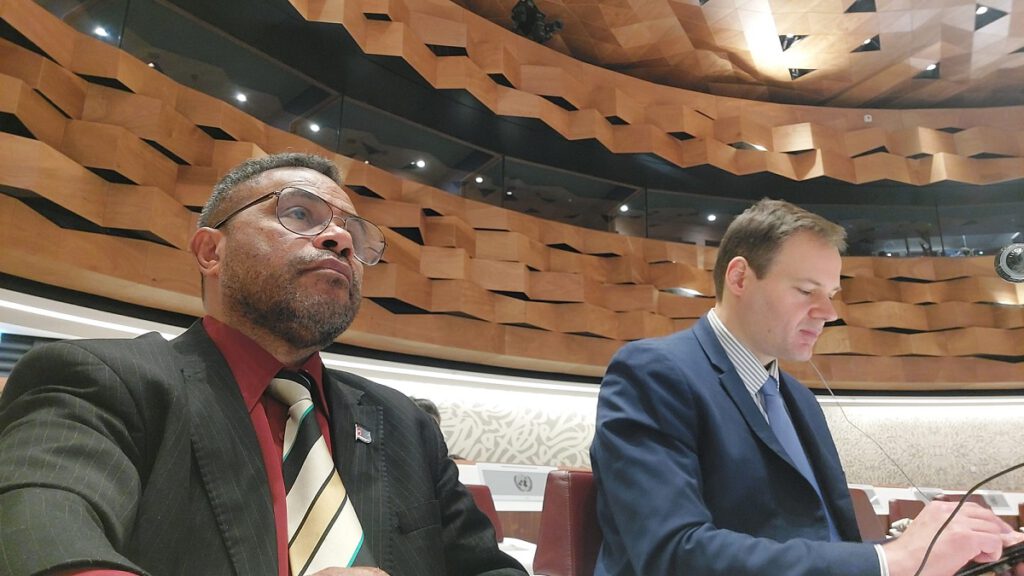
I want to highlight the role digital exclusion plays in the cultural heritage crisis of minorities, using the situation of the North-Frisian community in northwestern Germany as an example.
The North-Frisian community of approximately 50-thousand people is a recognised national minority in Germany. German law guarantees support and protection of the Frisian language and culture. However, this promotion and protection does not cover digital interactions. For example, all digital government services are solely in German. Furthermore, no official digital product can be used in the North-Frisian language.
Big technology companies, like Google and Microsoft, have community partnership programs with which they offer minorities the ability to digitalize their language. For example: the Sorbs are also a recognized national minority in Germany. In April 2023, they announced the final incorporation of the Sorbian language into the Microsoft Office digital products. This was the result of a community partnership program where Sorbian cultural organizations, funded by the German government, cooperated with Microsoft engineers in creating a digital language model for Sorbian.
We have also shown interest in this community partnership program and Microsoft gave us an overview of what they need in order to create a digital language model for North-Frisian. This includes one million parallel translated sentences and a great deal of other resources that the North-Frisian community unfortunately does not have.
Without such a digital language model, it is not possible to access North-Frisian cultural heritage through digital means and as a result, the community will remain linguistically excluded from the digital public sphere and their cultural heritage.
In order to overcome this problem, the government should provide the resources to create a digital language model for the North-Frisian language. The same should also apply to other small minority languages.
Thank you,
Jeroen Zandberg
